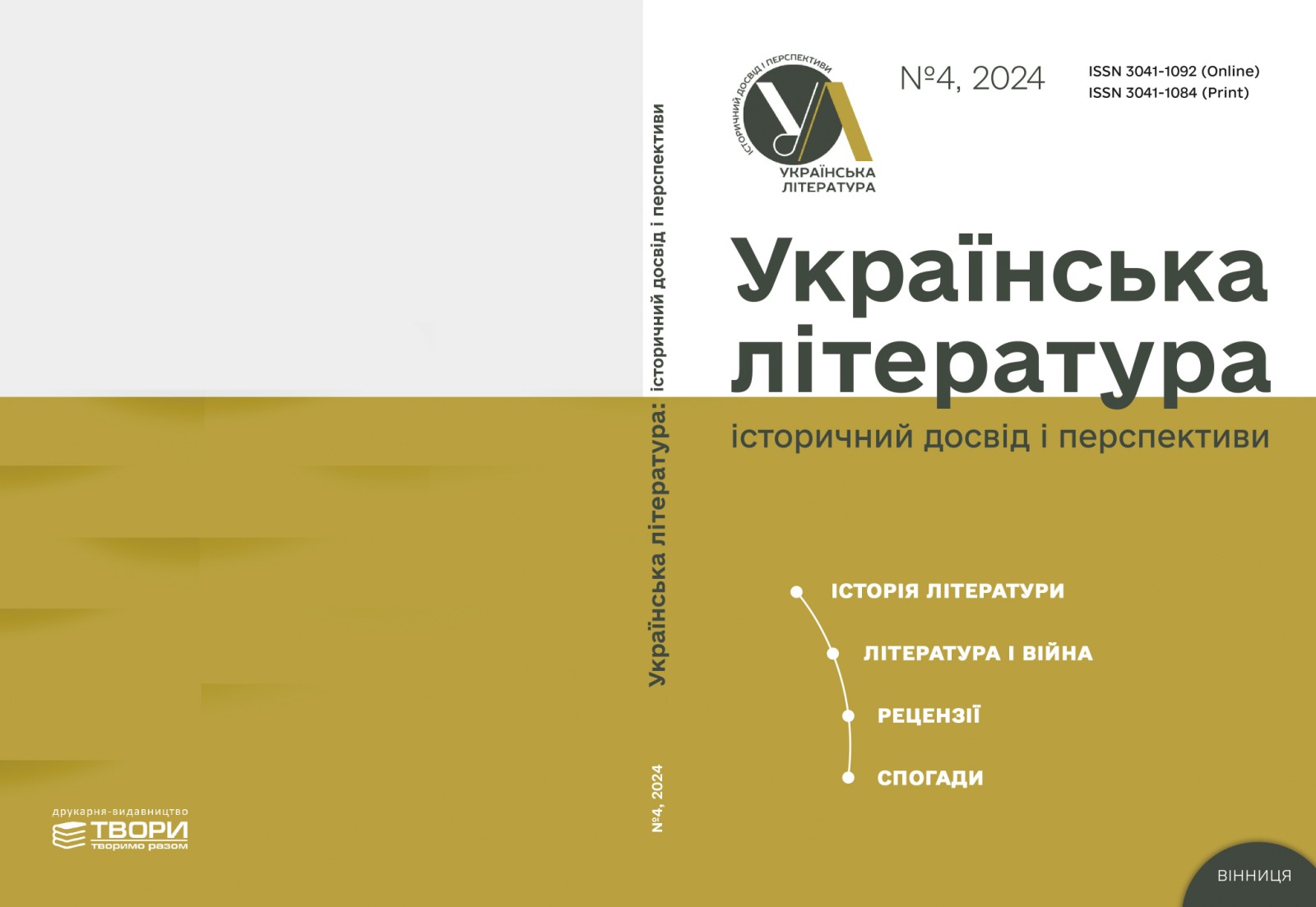On the Question of the Worldview Basis of Ancient Ukrainian Poetic Texts: From «The Tale of Ihor's Campaign» to the Vertep Drama
https://doi.org/10.31652/3041-1084-2024-4-01Published 2024-12-31
Keywords
- worldview, positivism, metaphysics, religion, poetry, mythology, folk creativity, pagan prayers, Christian prayers
Copyright (c) 2024 Ігор Зиновійович Павлюк

This work is licensed under a Creative Commons Attribution 4.0 International License.
How to Cite
Abstract
Global humanities, despite their diverse and often ambiguous formulations, generally distinguish three worldviews (systems of perspectives on life, nature, and society): positivist, metaphysical, and religious. These worldviews provide the temporal and spatial frameworks within which arts and technology, including poetry (music of the Logos), exist. Poetry, as a verbal manifestation of the soul’s energy, spirit, beauty-harmony, and unity with the universe, serves as a symbolic representation of these worldviews, with the word often being their primary sign or symbol.
Each worldview, through its evolution and transformation, has crystallized its own signs, symbols, and codes, ultimately striving to become a myth: either a legend (a myth with a minor tone) or a fairy tale (a myth with a major tone that always ends happily). Over time, these worldviews, while claiming static or reproductive immortality across temporal verticals and spatial horizontals, are inevitably influenced by factors such as race, class, gender, nationality, and rural or urban contexts. From the individual worldviews of poets, historiography, historiosophy, and a nation's understanding and perception of the world, the afterlife, and the universe are constructed.
This article identifies the trends and dynamics of the formation and transformation of worldview concepts (pagan and Christian) in ancient Ukrainian poetry and their representation across various verbalized poetic forms. These range from the worldviews of the creators of pagan prayers and the worldview of the author of “The Tale of Ihor's Campaign” to the foundational worldviews underlying diverse genres of folk poetic creativity (ritual, recruitment, soldiers’ songs, lullabies, laments, and Vertep dramas). The article also explores the worldview foundations of the first Christian polemic poets, including Ivan Vyshenskyi, Ivan Velychkovskyi, Hryhorii Konyskyi, and the poet-philosopher Hryhorii Skovoroda.
Particular attention is paid to Ukrainian-language poetry at the intersection of paganism and Christianity, examining national symbols, signs, and mythologems in the formation and re-creation of the worldviews of poetic creators. The study further investigates how these worldviews have been reinterpreted by later poets, contemporary interpreters, and the expansion of Ukrainian-language poetic works into the global cultural and informational space.
Downloads
References
- Білоус П. Історія української літератури XI-XVIII ст.; навч. посіб. Київ : ВЦ «Академія», 2009. 424 с.
- Крекотень В. Київська поетика 1637 року. Літературна спадщина Київської Русі і українська література XVI-XVIII ст. Київ : Наукова думка, 1981. 264 с.
- Вертеп Ігоря Павлюка (сценарій; відео). URL: http://zolotapektoral.te.ua/vertep-ihorya-pavlyuka-stsenarij-video/





